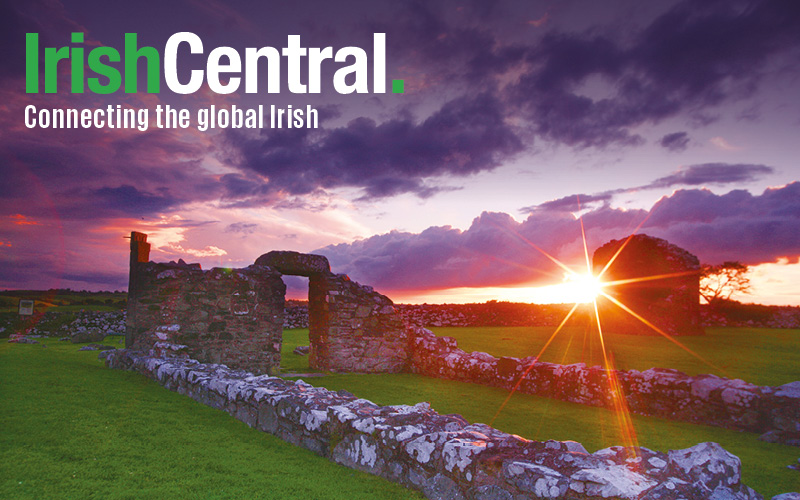The online Irish-language community was outraged this week when an Irish cellphone company suggested a customer use an English translation of her name on their website.
Caoimhe Ní Chathail, from Co. Donegal, was attempting to top up her phone account with Three Ireland and became frustrated when she was unable to use her correct name to complete the transaction.
Each month when Ní Chathail enters her last name the site refuses to accept the fada in “Ní” and will not allow her to top up her credit.
Ní Chathail took to Twitter to vent her frustration and complained to Three about their site’s continued refusal to accept her name.
"You must provide a valid last name" is what @ThreeCare 's website says when I try to top up using my name in Irish, the only version
— Caoimhe Ní Chathail (@CaoimheChats) May 30, 2016
of my surname that I use .. a website in Ireland should be able to deal with 'Ní' @ThreeCare
— Caoimhe Ní Chathail (@CaoimheChats) May 30, 2016
Much to the disgust of Ní Chathail and many other Twitter users, however, the moderator of Three’s Twitter account responded to her complaint by suggesting she use her name in English.
@CaoimheChats Hey Caoimhe, have you tried entering your name in English? Is the translation Caoimhe Cahill? Joolz
— Three Ireland Online (@ThreeCare) May 30, 2016
@ThreeCare the fact that translating it into English seems to be the answer here is ridiculous, I have every right to use my name in Irish
— Caoimhe Ní Chathail (@CaoimheChats) May 30, 2016
“Joolz” has since apologized for the suggestion and any offense caused, but not before Twitter users had their say.
@CaoimheChats Hi Caoimhe, I totally get why you were offended - an embarrassing slip up on my part. I'm sorry! We're working on a solution.
— Three Ireland Online (@ThreeCare) May 30, 2016
“I could not believe that the answer I received was their response,” Ní Chathail said.
“Clearly there was a lack of understanding there for what I was standing up for and I fully accepted the later apology.
“To me, translating my name to English is not an option. I have no interest in using the English version and I haven't used anything but the Irish version since I was 10 or 11 years old.”
Read more: Proof the Irish language is far from dead, from the Aran Islands to Dublin
@ThreeCare @CaoimheChats wow. Serious disrespect there lads.
— John Prendergast (@prendizzle) May 30, 2016
@ThreeCare @CaoimheChats Definition of how not to respond to a customer when your software is wrongly configured #computerdoesntdofadas
— Seán Ó hAdhmaill (@Feirsteach) May 30, 2016
The outrage came as The Irish Times features journalist Rosita Boland faced her own backlash for an opinion piece in Monday’s edition of the paper questioning whether Irish was a “necessary” language. Chronicling her own experience of the language through the Irish education system, Boland stated she listed herself as having no Irish on this year’s census form for the first time.
“Not even the most passionate Gaeilgeoirí could describe Irish as a useful language to have outside Ireland,” she wrote.
“It might be fun to chat to another Irish-speaking person abroad – if there are two of you, and you are both fluent, and for some reason do not want other people to understand what you are saying – but nobody could describe it as a useful way of communicating with local people.”
.@RositaBoland @harrymcgee 700,000+ took part in Seachtain na Gaeilge this year, a festival promoting #Gaeilge all over the world. #Relevant
— Seachtain na Gaeilge (@SnaGaeilge) May 30, 2016
@kenearlys @declynchwriter @GavanTitley @RositaBoland @aslinndubh I disagree. Benefits of bilingualism are proven. Cultural importance too.
— Peter Kavanagh (@TheKavOfficial) May 30, 2016
@RositaBoland your entitled to your opinion but the response might enlighten you as to how engaged&passionate those who love it are
— Siún Ní Dhuinn (@Siuners) May 30, 2016
Researching opportunities available to Irish speakers outside Ireland might've helped,as a journalist @RositaBoland https://t.co/uoEt0zRrmQ
— LisaNicAnBhreithimh (@LisaNicAnB) May 31, 2016
No point tweeting at me in Irish, folks. I can't read it. How about sending me the English version instead? Otherwise, it's pointless
— Rosita Boland (@RositaBoland) May 30, 2016
If they're insulting, another reason why Irish isn't necessary to me.
— Rosita Boland (@RositaBoland) May 31, 2016
Following Ní Chathail's airing of her difficulties, other customers with similar stories have come forward, including some whose names contain characters not available in English and who have trouble booking tickets or submitting their name online.
Speaking on TodayFM’s "The Last Word," General Secretary of Conradh na Gaeilge Julian De Spáinn said: “When people are putting these systems together they just don’t take into account other languages and that’s surprising as it’s not just Irish that’s let down. Other languages are let down because of that and we see around the continent and around the world that people would take language fairly seriously and they would put systems together that take fadas or take the umlauts, the accents or whatever it is in other languages. I think it is something that people should think more about.”
"Last Word" host Matt Cooper shared a story of a colleague who could not submit her Irish name, fada and all, when booking an airline ticket and so left them aside, only to be denied entry to the flight because the name on her boarding card did not now match the name on her passport.
“This is definitely a common problem in Ireland and much bigger than myself or Three,” Ní Chathail continued.
“So many websites and companies cannot handle names in Irish. For state bodies, An Coimisinéir Teanga is a brilliant source of help but it gets harder when it comes to privately owned companies. Conradh na Gaeilge has raised this issue with many companies in the past however, and continue to do so.
“Whether it's a lack of respect for your name being in Irish when you are face to face with someone working for the company or a website not being able to accept a fada, there are daily examples of ignorance out there in this country.”
Comhghleacaí liom; "Eh no one uses those fada things in their names, literally no-one"
— John (@Beachtaire) May 30, 2016
Mise; pic.twitter.com/FpeRucsMCd
@CaoimheChats Caoimhe, I wouldn't even say that's your 'name in Irish'. I'd just say that's YOUR NAME!! @ThreeCare @DCUALUMNI
— HazelKatherineLarkin (@HazelKLarkin) May 30, 2016
@CaoimheChats @damomac @ThreeCare, And Irish has no letters that aren't also in many European languages. Three operate across Europe
— Aaron McDaid (@aaronmcdaid) May 31, 2016
A spokesperson for Three again apologized for the initial mistake and for any offense it caused.
“We sincerely apologize for the response given to one of our customers on Twitter today. It was a mistake and we do of course understand that it caused offense, for which we are truly sorry,” the spokesperson told Irish language news website Tuairisc.ie.
“Our customer care team in Limerick has apologized to the customer and our technical team is looking into getting this part of our website updated.”
The spokesperson added that the issue arose only when customers were attempting to top up their accounts and not within other areas of the site, and it was not company policy to ask their customers to use English-language names.
Read more: “An Ireland without the Irish language wouldn’t be the same place” (VIDEO)
And for those of you who don’t yet understand the importance of the fada, here’s a handy graphic that will highlight the social faux pas that could arise if you forget to write them in the right places.
I bhfianaise #NíMéCaoimheCahill, seo an fáth go bhfuil an #fada ríthábhachtach! #Gaeilge https://t.co/xXrHgsqxgh pic.twitter.com/WIraLmvPpZ
— Conradh na Gaeilge (@CnaG) May 30, 2016
A month from today @CaoimheChats will try to buy credit from @ThreeCare using her own name live on air on @Cormacag5 @RTERnaG
— Cormacag5 (@Cormacag5) May 30, 2016




Comments